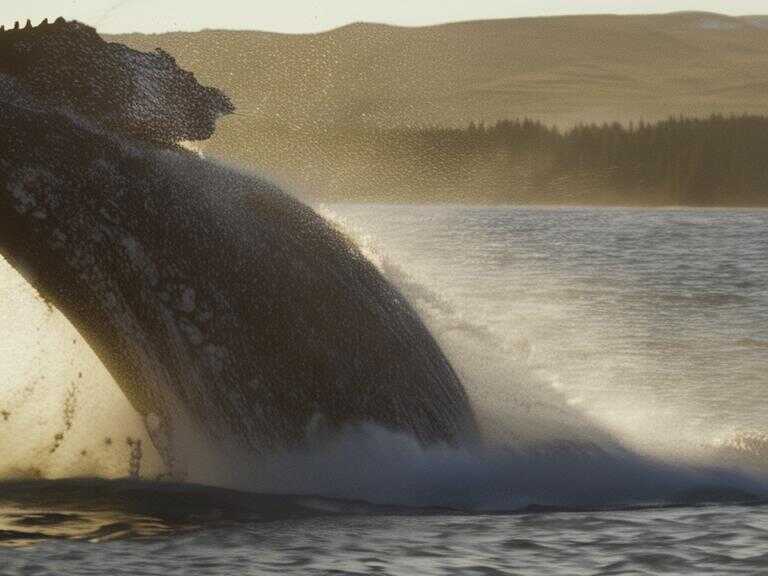
Humpback Whale Epic Journey Unveiled in New World Ocean Day Film
A new video documents the epic journey of humpback whales migrating from Alaska to Hawaiʻi to give birth, highlighting their sacrifices and the importance of protecting their habitat.

Every year, thousands of humpback whales embark on an extraordinary Humpback Whale Journey, traveling nearly 3,000 miles from Alaska to Hawaiʻi. This annual migration is a testament to their resilience and endurance, as they navigate vast oceans while facing various challenges along the way. The journey is even more remarkable considering the immense physical demands it places on pregnant females.
The Perils and Wonders of the Humpback Whale Journey
A recently released video titled "In the Wake of Whales" offers a captivating glimpse into this epic voyage. Produced in partnership between the Marine Mammal Research Program at the University of Hawaiʻi at Mānoa and Dolphin Quest, the video celebrates World Ocean Day by highlighting the wonders and urgency surrounding the conservation of these magnificent creatures.
The Cost of Pregnancy and the Threat to Habitats
The video showcases breathtaking footage of humpback whales as they migrate, while also following University of Hawaiʻi scientists who study and monitor their behavior. One particularly fascinating aspect explored is the significant energy expenditure required for pregnancy. A single pregnancy costs a mother about 22 million calories, including an astonishing 97 pounds of fetal growth per day in the final months.
This immense caloric demand underscores the vulnerability of humpback whales to environmental changes. As our oceans face increasing pressures from pollution, climate change, and habitat destruction, the threats to these majestic animals intensify. Scientists warn that changing ocean conditions are already impacting their threatened habitats and migratory patterns, making conservation efforts even more crucial.
Researching and Protecting Our Oceanic Giants
The "In the Wake of Whales" video also features researchers documenting whale behaviors, collecting data, and photographing the unique tail markings of individual whales. These markings act as identification markers, allowing scientists to track populations and understand their movements better. The collected data is uploaded to Happy Whale, a global database accessible to researchers and the public, contributing to a comprehensive understanding of humpback whale populations worldwide.
The Marine Mammal Research Program's efforts have resulted in cataloging over 10,000 whales, representing approximately 80% of the estimated 12,000 whales migrating to Hawaiʻi. This makes their collection the largest in the world, providing invaluable insights into the lives and challenges faced by these magnificent creatures.
Through initiatives like "In the Wake of Whales" organizations like Dolphin Quest and the Marine Mammal Research Program are raising awareness about the importance of protecting humpback whales and their habitats. By supporting ongoing research and conservation efforts, we can all play a role in ensuring that future generations have the opportunity to witness these awe-inspiring creatures on their annual journeys.
Share news















